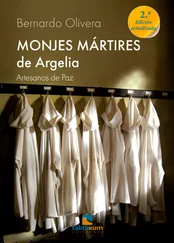Bernardo Atxaga - Obabakoak
Здесь есть возможность читать онлайн «Bernardo Atxaga - Obabakoak» весь текст электронной книги совершенно бесплатно (целиком полную версию без сокращений). В некоторых случаях можно слушать аудио, скачать через торрент в формате fb2 и присутствует краткое содержание. Год выпуска: 2010, Издательство: Graywolf Press, Жанр: Современная проза, на английском языке. Описание произведения, (предисловие) а так же отзывы посетителей доступны на портале библиотеки ЛибКат.
- Название:Obabakoak
- Автор:
- Издательство:Graywolf Press
- Жанр:
- Год:2010
- ISBN:нет данных
- Рейтинг книги:3 / 5. Голосов: 1
-
Избранное:Добавить в избранное
- Отзывы:
-
Ваша оценка:
- 60
- 1
- 2
- 3
- 4
- 5
Obabakoak: краткое содержание, описание и аннотация
Предлагаем к чтению аннотацию, описание, краткое содержание или предисловие (зависит от того, что написал сам автор книги «Obabakoak»). Если вы не нашли необходимую информацию о книге — напишите в комментариях, мы постараемся отыскать её.
Obabakoak
The Observer
Obabakoak — читать онлайн бесплатно полную книгу (весь текст) целиком
Ниже представлен текст книги, разбитый по страницам. Система сохранения места последней прочитанной страницы, позволяет с удобством читать онлайн бесплатно книгу «Obabakoak», без необходимости каждый раз заново искать на чём Вы остановились. Поставьте закладку, и сможете в любой момент перейти на страницу, на которой закончили чтение.
Интервал:
Закладка:
“Would you like me to call you a taxi, monsieur ?” repeated the waiter.
“ Merci beaucoup, Marcel. You’re very kind. I am actually feeling a little unwell.” The waiter rushed off to the telephone.
“So you’re unwell, are you? Don’t make me laugh, Klaus,” said the harsh voice.
“You’re very cruel sometimes, Alexander. I know I’ve drunk a bit too much. After all, it is my birthday,” replied Klaus, a complaining note creeping into his voice.
The tropical fish were swimming back and forth in the tank again. Klaus gave them a knowing wink.
“I’m a thinker too, my friends!” he told them.
“The taxi won’t be long, monsieur. It will wait for you at the gate to the park,” the waiter announced.
“Many thanks, Marcel. I mean that,” said Klaus, slapping him on the back. Then he stumbled out of the restaurant and walked over to the taxi.
An hour later he was opening the door to his flat. He had made the journey with the taxi windows down and he no longer felt quite so dazed. But he was still glad that he had everything prepared. The most important part of his luggage was already at the airport. The rest — an overnight bag — waited in a corner of the living room. All that remained was for him to rest a little and then say good-bye to that cheap flat. He didn’t like it but, nonetheless, he had lived there for forty-seven years.
Before sitting down on the sofa, he brought the three alarm clocks into the room and took out the old hunting rifle from the cupboard where he had put it the night before. Klaus kissed the rifle and laughed.
“You’re drunk, Klaus,” said the harsh voice.
“Thanks very much,” he said to the rifle. He had bought it from a fellow worker two years earlier and had only used it once.
“Yesterday morning,” thought Klaus, surprised. It seemed much longer than that since he had used it to hold the bank manager’s family hostage. But the impression was entirely false, only twenty-four hours had passed since then. “I’m calling from your home. I have your wife and two daughters with me. I presume that you do at least love your daughters. I need two hundred thousand marks. It’s up to you if you bring them to me or not, but it would be best if you did so without a word to anyone else, since I forgot to mention that I have a rifle in my hand with six bullets in it. Bring the money and no one will get hurt.”
However, later — Klaus recalled with sadness — he had had to kill them all, not because he wanted to, but because of Alexander, because Alexander, being only a child, didn’t understand how horrible death was. Generally, he took no notice of him and refused to follow his orders to kill. He only obeyed when he was upset.
“And, unfortunately, yesterday I was very upset,” thought Klaus, yawning.
“You’ve drunk too much wine, Klaus. You’re talking nonsense,” said the harsh voice.
“I’m sleepy, Alexander,” he replied. His eyes were closing.
“Get up at once, Klaus. You can sleep all you want to on the island of turtles!” shouted Alexander. “You’re here now and you haven’t even looked at yourself in the mirror. You should take a bit more care over your new appearance,” he added afterward in a gentler voice.
“All right, Alexander, all right,” said Klaus obediently. Sometimes his little brother bored him. Why make him get up at a moment when even his white suit weighed heavy on him? He didn’t understand how he could be so capricious.
“Klaus Hanhn?” he asked, having planted himself in the middle of the room.
The figure in the mirror nodded, just as it had that morning, but not as enthusiastically as he had hoped. The white suit looked good, as did the rifle inclined against his chest, but everything else was wrong. Especially his face. The sweat had ruined the work of all those skin creams. The red blotches had appeared again.
“The greasy skin and the blotches,” the doctor had said, “are congenital in nature.”
He remembered that he still had one bullet in the rifle chamber and he leveled the weapon at his own image, at the red blotches on his face. He took his aim of the target — sure, unmoving — opening and closing one eye. From the other side, in ironic symmetry, the other marksman reflected back.
“I’d be sure to win,” shouted Klaus, laughing out loud and throwing the rifle to the floor. The figure in the mirror laughed just like him and he too withdrew from the duel. Both of them were decidedly drunk.
He was just about to pick up the rifle again when the telephone rang. Startled by the ringing, Klaus wheeled around and fell onto the sofa.
“I don’t want to talk to you!” he shouted. “I’ve explained it all on the postcard!” The telephone kept ringing. Its sheer persistence irritated him. “I’ve celebrated my birthday already! I dined on savarin !”
Remembering that dish brought on another fit of laughter.
The laughter and the ringing ended at the same time and Klaus took advantage of the quiet to see what time it was by the three alarm clocks. It was just a few minutes before five o’clock.
“Four hours before I get the plane,” he thought with a grimace of boredom. They would seem like an eternity. Even longer with the headache he could feel coming on.
“So much time!” He sighed, rubbing his eyes. He could go to the airport now, but it wouldn’t be wise. Anyway, he didn’t feel like moving.
“Get up this minute, Klaus!” ordered Alexander, seeing him leaning back against one of the arms of the sofa. “Don’t go to sleep without setting the alarm clocks!” he warned.
Alexander’s proposal seemed reasonable. Whether he wanted to or not, he would end up going to sleep and it was best to take precautions. Yes, he would go to sleep for a couple of hours and then go to the airport. Given the circumstances, that seemed the most intelligent thing to do. These final steps had to be taken calmly.
Without getting up from the sofa, he reached out and began to set the alarm clocks. He set the first for two minutes to seven, the second for one minute to seven, and the third for seven o’clock exactly. One of the three was bound to wake him.
He stretched out on the sofa, and, knowing that sleep would not be long in coming, he forced himself to think about that dreamed-of island of turtles. The island was small and in the shape of a snail. However — if the information given him by the travel agency was correct — it lacked for nothing and was suitably equipped to welcome all first-class visitors. It had two hotels, about two hundred bungalows and one hundred country cottages. And there was more: garages, cafés and restaurants, three large cinemas, and a small port bobbing with white yachts. The whole island was full of life and color, and such was the joie de vivre of the islanders that they spent the whole day singing. The palm trees were not to be sniffed at either. They were the tallest palm trees in the world; they fringed the beaches. And the beaches — that was the most marvelous part — were tremendously wide and long and encircled the island like a ring of sand. The sea was blue in the morning and emerald in the evening and the vast majority of the fish were red.
Klaus looked hard at those red fish. They let themselves be carried on the emerald waves, advancing and retreating. It was as if the sea were rocking them to sleep.
“You were right, monsieur. They are lovely fish. Far lovelier than the fish in the restaurant,” said someone at his side. Klaus opened his eyes and saw that it was Marcel, the waiter from the Paris restaurant. Along with his bow tie, he was now wearing a pair of swimming trunks, white with black dots.
“We don’t eat savarin on this island, Marcel,” he said. But the waiter had vanished from the beach.
Читать дальшеИнтервал:
Закладка:
Похожие книги на «Obabakoak»
Представляем Вашему вниманию похожие книги на «Obabakoak» списком для выбора. Мы отобрали схожую по названию и смыслу литературу в надежде предоставить читателям больше вариантов отыскать новые, интересные, ещё непрочитанные произведения.
Обсуждение, отзывы о книге «Obabakoak» и просто собственные мнения читателей. Оставьте ваши комментарии, напишите, что Вы думаете о произведении, его смысле или главных героях. Укажите что конкретно понравилось, а что нет, и почему Вы так считаете.











